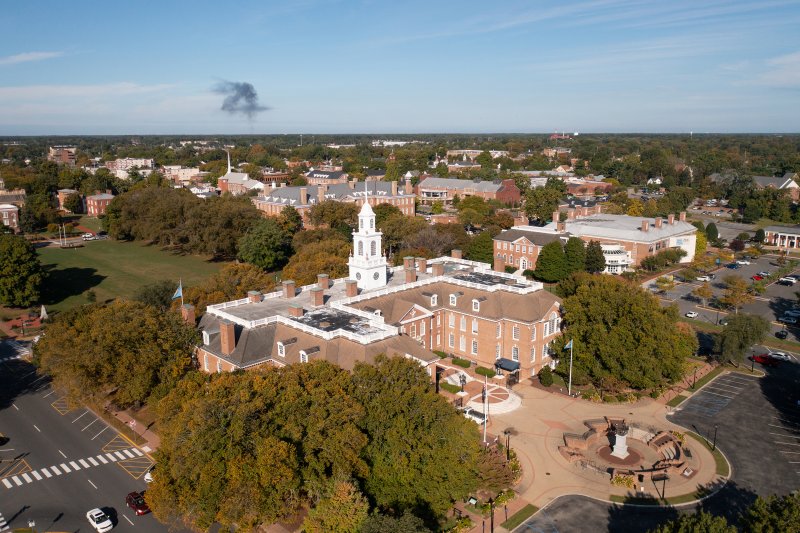A bill to change Delaware’s tax code, separating it from federal code, passed the House Nov. 13 by a 26-13 vote with two absent.
House Bill 255 to decouple Delaware’s tax code from the federal tax code was considered during an extraordinary session requested by Gov. Matt Meyer over what his administration says would be a $400 million revenue shortfall over the next few years from tax breaks given by the Trump Administration’s One Big Beautiful Bill Act.
Two amendments were added to the bill. One would sunset the provisions for qualified production property after the 2030 tax bill, requires the Department of Finance to present a report regarding the actual revenue impact of the bill and updates on federal law and recommendations for future tax policy at the December 2027 Delaware Economic and Financial Advisory Committee meeting. The second amendment allows C corporations to expense domestic research and experimental costs under the provisions in place before OBBBA until Dec. 31, 2024.
Rep. Mike Smith, R-Newark, said the $400 million shortfall is a projection, and it is ironic the $1 billion in rural healthcare funds announced a day earlier by Meyer comes from the same federal law.
Bill sponsor, House Majority Leader Kerri Evelyn Harris said she is not attacking OBBBA in general, but choosing parts that could affect the state economy.
Rep. Bryan Shupe, R-Milford, also stressed the shortfall is a projection.
“The fire is not in Washington, it’s right here,” Shupe said.
The DEFAC numbers don’t show the whole picture, Shupe said, because the numbers only show what the state could lose. However, he said, there is no data showing how the economy could benefit if companies are able to expense costs and grow their businesses. He suggested waiting for December DEFAC numbers and slow spending, if needed.
Secretary of Finance Michael Smith said they are still allowing up to $2.5 million deductions in a year's time, which benefit small corporations, but they are decoupling from federal tax code on bonus depreciation, which allows companies to write off expenses going back to 2022 in one year instead of spreading it out over several years.
David Roose, director of research and tax policy for the Department of Finance, said the state budget is now feeling the effect of reduced revenues, but the total drop won’t be known until all tax returns are filed.
Secretary of State Charuni Patibanda-Sanchez said companies don’t choose Delaware for tax law, but for the Chancery Court and an established business franchise. She said they’ve seen an increase of about 13% in new incorporations over the past year.
“Delaware is doing very well,” she said.
Although under questioning, she could not say how large the new entities are.
Shupe said Coinbase recently stated it is leaving Delaware because it has no consistency with its laws, and also the court.
“This is what CEOs are saying about why they are leaving Delaware,” he said.
Virtual voting
A bill to allow remote voting in special sessions was passed, ironically, a few minutes after a technical glitch resulted in a recess on the House floor Nov. 13 during its special session.
House Resolution 19 permits remote attendance and participation by members at a special session, so long as a quorum of the House is physically present in Dover. Authorization of the speaker of the house is required for remote participation, according to the bill.
Several Republicans spoke up against the bill, noting the technical issues that had occurred and could possibly occur in the future.
“It seems to me if there are special or extraordinary sessions … we should all take a special and extraordinary effort to vote,” said Rep. Dan Short, R-Seaford.
“This is the oath that we take,” said Shupe.
“Can we trust the integrity of the process, if we’re not all together?” said Rep. Jeff Hilovsky, R-Millsboro. “Maybe this is a time we stand together.”
Rep. Rich Collins, R-Millsboro, quoted the state constitution, saying that it states the General Assembly must meet and sit.
House Attorney Karen Lanz said there is interplay allowing the House to make rules, and with a quorum in Dover required by the bill, it falls under the rules.
Bill sponsor Rep. Ed Osienski, D-Newark, said the Senate has already allowed the virtual option for years.
The bill passed 22-15 with three absent and one not voting. The change gave the House the ability to tap into the some of the absent votes in order to reach the three-fifths needed to pass House Bill 255 just after. In order to pass, the bill needed 25 votes.
Also passing during the special session was a bill to extend the date for New Castle County residents and businesses to pay their property taxes.
Melissa Steele is a staff writer covering the state Legislature, government and police. Her newspaper career spans more than 30 years and includes working for the Delaware State News, Burlington County Times, The News Journal, Dover Post and Milford Beacon before coming to the Cape Gazette in 2012. Her work has received numerous awards, most notably a Pulitzer Prize-adjudicated investigative piece, and a runner-up for the MDDC James S. Keat Freedom of Information Award.























































